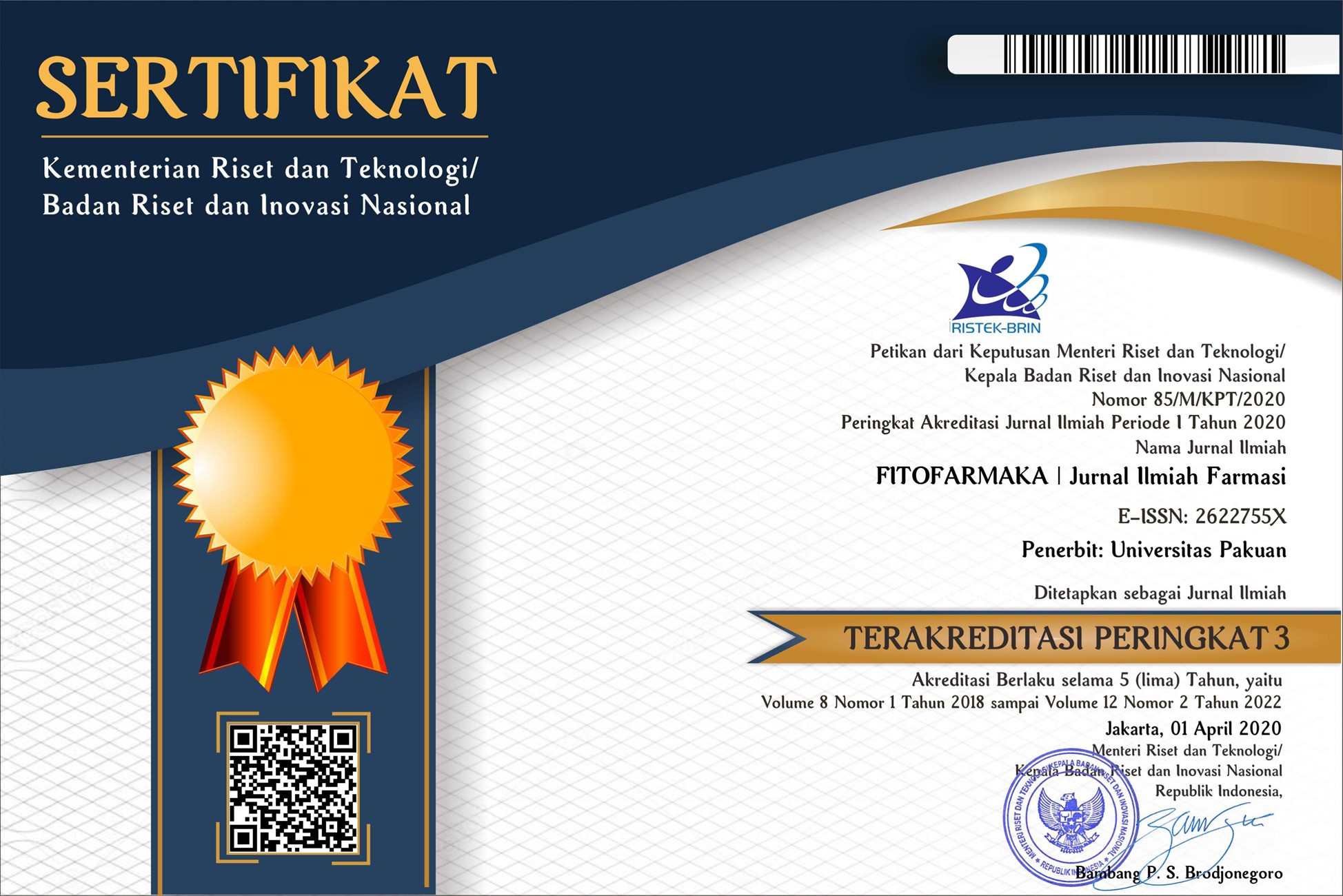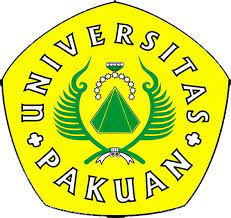Editorial Policies
Focus and Scope
Fitofarmaka: Jurnal Ilmiah Farmasi is a scientific journal publishing original research and review articles such as:
- Pharmaceutical Chemistry,
- Pharmaceutical Technology,
- Pharmaceutical Biotechnology,
- Microbiology Pharmacy,
- Pharmacology,
- Toxicology,
- Pharmacognosy and Phytochemistry,
- Clinical Pharmacy
Section Policies
Articles
 Open Submissions
Open Submissions Indexed
Indexed Peer Reviewed
Peer Reviewed
Research Article
 Open Submissions
Open Submissions Indexed
Indexed Peer Reviewed
Peer Reviewed
Review Article
 Open Submissions
Open Submissions Indexed
Indexed Peer Reviewed
Peer Reviewed
Peer Review Process
Fitofarmaka: Jurnal Ilmiah Farmasi applies a double-blind review system in which the author and reviewers do not recognise each other, and their identity is maintained to be confidential. Reviewers are obliged to declare when they found that the article that they are assigned might have any potential conflict of interest. We attempt to complete the article review and processing in 4-12 weeks after submission. The submitted articles will undergo screening and review processes below:
1. Author submission
2. Technical check by administrator (i.e., supporting document completeness)
For checking Plagiarism, Fitofarmaka : Jurnal Ilmiah Farmasi Editorial Board will screen plagiarism using Turnitin minimum 30%. If it is found plagiarism indication, editorial board will reject manuscript immediately (letter of permanent rejection to be issued).
3. Editorial consideration after the technical check (i.e., writing style, formatting style, referencing, topic appropriateness, plagiarism check), decision:
a. Pass/Appropriate, then go to step 3 (letter of submission to be issued)
b. Fail/Inappropriate, then REJECTED, to be revised and re-submit (letter of rejection including revision suggestions to be issued) OR final rejection (letter of permanent rejection to be issued)
4. First Round Peer Review, double-blind (i.e., the appointment of two reviewers by the section editor, review process and results in the levels of criteria). Peer review results:
a. Both reviewers recommend for rejection (level 5), then go to step 5a
b. Both reviewers recommend for acceptance with major (level 4) or minor (level 3) revision, then go to step 5b
c. Both reviewers recommend for acceptance with revision by editors (level 2) or without revision (level 1), then go to step 5c
d. Conflicting recommendations, one reviewer suggests for level 3-4 acceptance, and the other suggests for level 1-2 acceptance, then go to step 5d
e. Conflicting recommendations, one reviewer suggests for rejection (level 5), and the other suggests for acceptance (level 1-4), then go to step 5e
5. Editorial consideration after review, decision:
a. Submission is rejected (letter of permanent rejection to be issued, including reviewers and editors suggestions)
b. Submission is sent back to the author (letter of revision request to be issued, including reviewers and editors suggestions)
c. Submission is accepted for publication (letter of acceptance to be issued, the corresponding author to fulfil all administrative requirements), then go to step 7
d. Editorial boards discretion and decision to be sent back to the author (letter of revision request to be issued, including reviewers and editors suggestions) OR to be accepted for publication (letter of acceptance to be issued, corresponding author to fulfil all administrative requirements), then go to step 7
e. Editorial boards discretion and decision to be assigned to a third reviewer (go to step 6) OR to be sent back to the author for revision with editors suggestion (letter of revision request to be issued, including reviewers and editors suggestions)
6. Second Round Peer Review, by a third reviewer, results:
a. A third reviewer recommends for rejection (level 5), then go to step 5a
b. A third reviewer recommends for acceptance (level 1-4), then go to step 5c
7. Lay-outing by the editorial team
8. Proofreading by the corresponding author
9. Article final lay-outing and finalisation
10. Article to be published
Publication Frequency
FITOFARMAKA: Jurnal Ilmiah Farmasi with p-ISSN is 2087-9164 and e-ISSN is 2622-755X. It is published 2 times a year (every June and December). It is a peer-reviewed journal and publishes original and review articles in Bahasa Indonesia and English.
Open Access Policy
This journal is an open-access journal that provides immediate, worldwide, barrier-free access to the full text of all published articles without charge readers or their institutions for access. Readers have the right to read, download, copy, distribute, print, search, or link to the full texts of all articles in Fitofarmaka: Jurnal Ilmiah Farmasi. This journal provides immediate open access to its content on the principle that making research freely available to the public supports a greater global exchange of knowledge.















